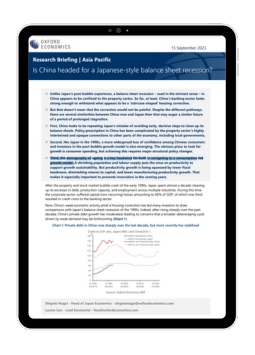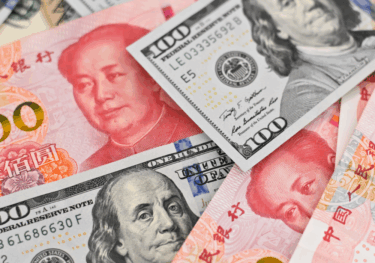Is China headed for a Japanese-style balance sheet recession?

After the property and stock market bubble crash of the early 1990s, Japan spent almost a decade cleaning up its excesses in debt, production capacity, and employment across multiple industries. Now, China’s weak economic activity amid a housing correction has led many investors to draw comparisons with Japan’s balance sheet recession of the 1990s.
What you will learn:
- Despite the different pathways, there are several similarities between China now and Japan then that may augur a similar future of a period of prolonged stagnation.
- First, China looks to be repeating Japan’s mistake of avoiding early, decisive steps to clean up its balance sheets.
- Second, like Japan in the 1990s, a more widespread loss of confidence among Chinese consumers and investors in the post-bubble growth model is also emerging.
- Third, the demography of ageing is a key headwind for both in navigating to a consumption-led growth model.
Tags:
Related Posts

Post
A reality check on the status of RMB internationalisation
The recent geopolitical shocks and abrupt US policy shifts have heightened concerns about the stability of the dollar-centric global financial system and strengthened the perceived need for diversification.
Find Out More
Post
The rise of Southern India’s business service hubs
Over the next five years, India is set to be one of the fastest-growing major economies across Asia Pacific, lead by the performance of its IT and business services. The Southern states of Karnataka and Telangana are at the forefront of this success as they are home to two of India’s most rapidly growing cities and productive cities—Bengaluru and Hyderabad.
Find Out More
Post
Tech-enabled productivity may mean a job-lite expansion in Asia Pacific
The US is undergoing or heading towards a 'jobless expansion'. Asian economies, likewise, will probably experience slow job growth over the next few years, accompanied by mechanically rising productivity gains. In the near term, the drag on the job market is likely to come from cyclically weak demand for labour. But further down the line, it is the shrinking labour supply that will weigh more heavily on employment growth.
Find Out More